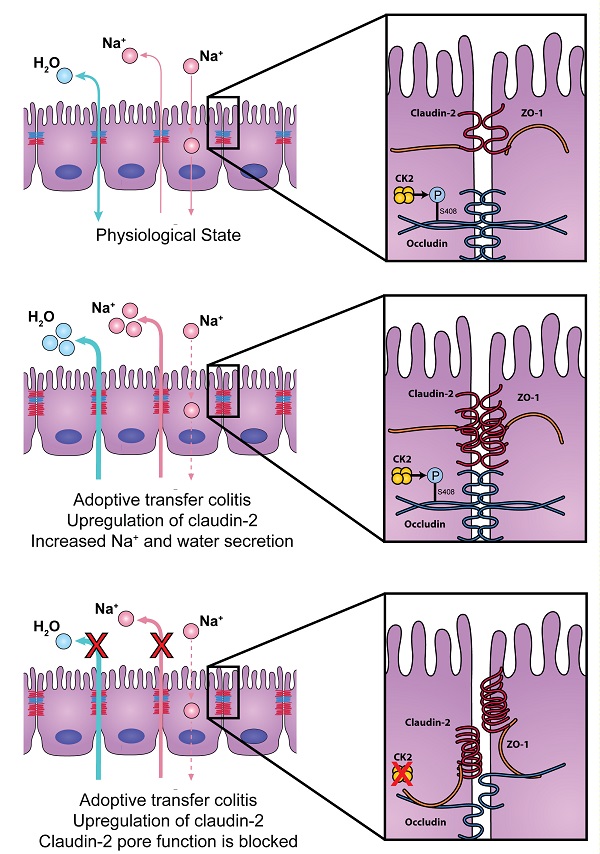Graduate thesis project
In my graduate work, I investigated the role of intestinal barrier function in inflammatory bowel disease (IBD) in the laboratory of Jerrold Turner. I focused on the tight junction protein claudin-2, which creates paracellular pores carrying water and small cations across epithelia, and whose expression is upregulated in IBD.

Furthermore, during my doctoral training I contributed my expertise in experimental models of IBD and morphological analysis to two collaboration projects (1) exploring the role of cytoskeletal components in tight junction dysregulation, loss of barrier function, and colitis Su et al. 2013 Gastro; and (2) exploring the role of intestinal sterol regulatory element-binding protein 2 in upregulation of serum cholesterol Ma et al. 2014 PLoS ONE.
Undergraduate thesis project
Prior to graduate school, I worked in the laboratory of Larisa Nonn in the Pathology Department at the University of Illinois at Chicago studying the role of microRNAs in regulation of zinc homeostasis in normal and cancerous prostate tissue. By using human prostate cancer tissue samples and prostate cancer cell lines we have demonstrated that miR-183-96-182 cluster regulates prostate carcinogenesis via a zinc transporter, hZip1 Mihelich, Khramtsova, et al. 2011, J Biol Chem.